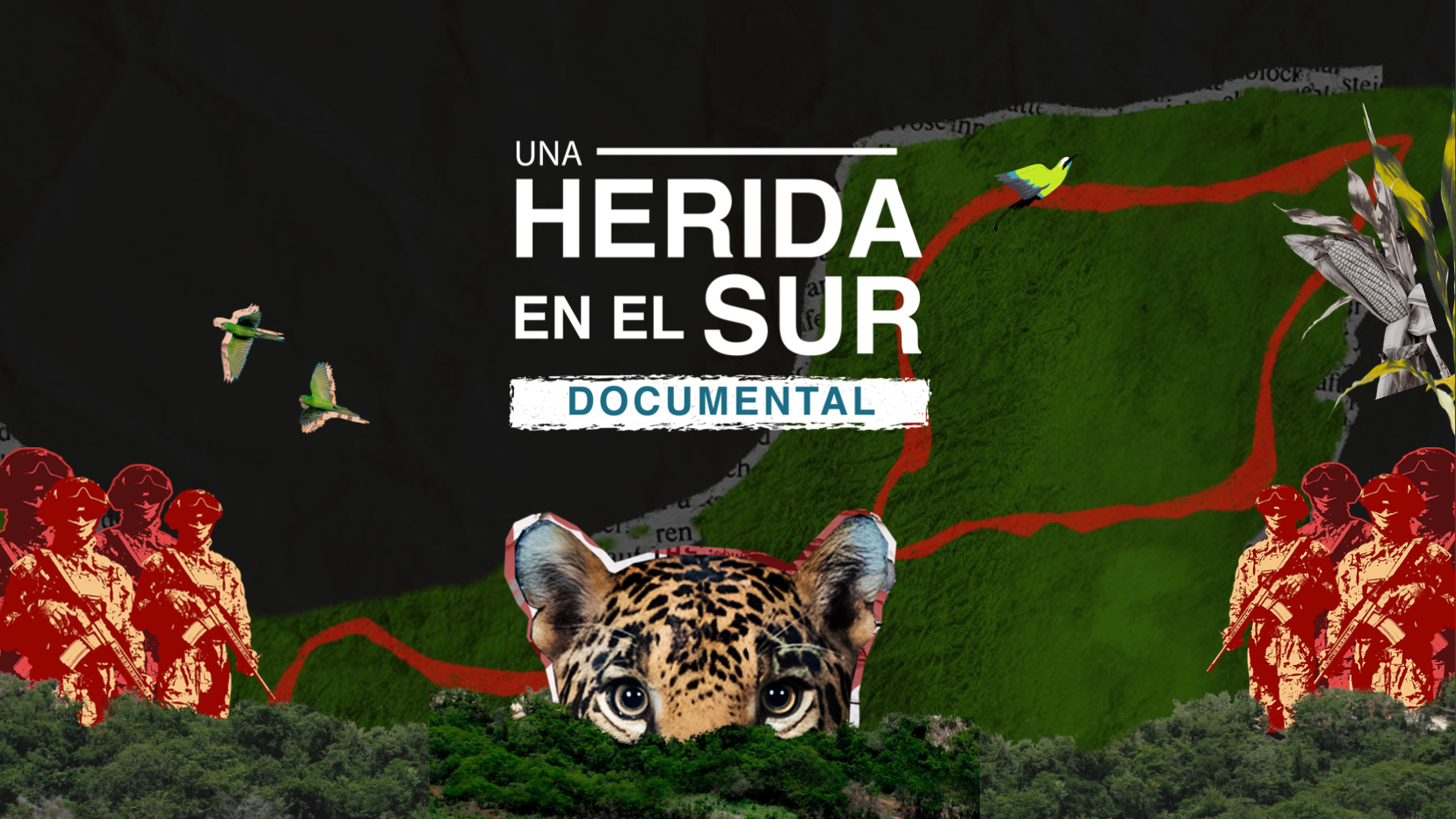






Mérida, Yucatán, Mexico, October 16, 2024 – On Friday, October 18, Kanan Human Rights, Pata de Perro Films and the Center for Justice and International Law (CEJIL) will release “Una herida en el sur”, a documentary that narrates the impacts linked to the installation of the “Mayan Train” megaproject in the states of Yucatán, Campeche and Quintana Roo.
From the voices of biologists, ecologists, ejidatarias, land defenders and activists, “Una herida en el sur” addresses the profound transformations of the Yucatan Peninsula in the face of the prioritization of extractivist policies, excessive tourism and militarization.
In the documentary, the organizations denounce that the construction of the so-called “Mayan Train” has been plagued by arbitrariness, including the lack of adequate environmental measures for its installation; opacity about its impacts and benefits; and the lack of prior, free and informed consultation with indigenous peoples and communities in accordance with international standards. With its arrival, militarization has also increased in the region, as it is the army that is building a large part of the train’s sections and administering the entire project.
According to the organizations, although the State presents the megaproject as just a train, in reality it is a long-term initiative to reorder the area and promote the arrival of projects that have damaged the territory, such as mass tourism, real estate, manufacturing and agro-industrial industries.
In the region where the project is being developed, the dispossession of collectively owned land by governments and businessmen to establish agroindustrial, tourism, real estate, and energy projects is alarmingly common. In addition, according to the research developed for the production of the documentary, the current situation of dispossession and extractivism in the peninsula has triggered a massive exploitation of precious woods, excessive use of pesticides and wastewater discharges, causing a worrying transformation in the soil.
All this has resulted in devastating deforestation and an irreparable loss of biodiversity, seriously affecting the ecological balance of the region.
The audiovisual denounces how the deterioration and dispossession of the territories are having devastating consequences for the communities. From the abandonment of the countryside and the rupture of spirituality, to the loss of territories and Mayan identity. The communities face a reality marked by criminalization, threats and a growing climate of violence.
For the organizations, “Una herida en el sur” is a story whose protagonist is not the Train, wrongly called “Maya”, but the transformation of a living territory: the Yucatan Peninsula. This audiovisual is a record of the multiple, profound and violent impacts of the policies of dispossession and the installation of extractive megaprojects in the South of Mexico. It is also the story of the resistance of those who defy racism, plundering, militarization and oblivion and, instead, bet on forests, water and life.
The documentary will be presented in Mérida this Friday, October 18 and will also be available on digital channels for free use from that date.
Help us continue this critical and urgent work with a donation!
DONATE NOW